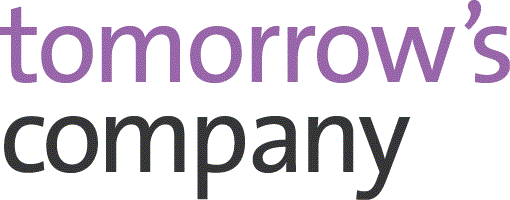Corporate Social Responsibility (CSR) Is Heading in the Wrong Direction Says Tomorrow's Company
Published 07-08-03
Submitted by Tomorrow's Company
"Under such circumstances, CSR will not make a long term impact on company performance and the society and the stakeholders companies serve." Says Mark Goyder, Director of Tomorrow's Company and the author of the paper. "As companies take CSR more seriously something is being lost. Call it what you like - the personality, the authenticity, the soul and character of the company is masked by pro-forma statement. CSR is too important to be left to CSR managers".
The paper offers a six-point CSR checklist for chief executives to distinguish between the two approaches.
Explaining the difference between the compliance and conviction CSR, Mark Goyder says: "To some people, CSR is a set of external behaviours by which a company ensures that it fits within society's template. This is compliance CSR. To others that is not enough. They use the term CSR to describe their approach to business leadership as a whole. To these people, CSR is synonymous with what Tomorrow's Company would call an inclusive approach to business - an approach in which every behaviour flows naturally from the company's purpose and values. This is conviction CSR."
"The majority of companies may state their compliance with the expectations of society. Enron, for example, was a great "compliance CSR" company. Only a minority communicate a clear sense of the strong purpose and values that differentiates a company from its competitors. The Co-operative Bank and Cadbury Schweppes are good examples here."
The paper addresses the historical roots of the growth of corporate responsibility well before the term CSR began to be used. Corporate progress towards greater responsibility has always been the result of both push and pull forces. From Robert Owen to Ricardo Semmler, visionary business leaders pulled their organisations to higher standards. And from William Wilberforce to the Fair Trade movement, their counterparts in society pushed for change.
Tomorrow's Company is particularly critical of the confusing vocabulary and the defective logic on which too many CSR policies are being based upon. The terms "triple bottom line" and "sustainability reporting" used by the Global Reporting Initiative (GRI) are particularly confusing phrases because they mix up the a company's ability to create continuing economic value for shareholders, which Tomorrow's Company calls "durability", with its impacts on society and the planet.
While recognising the need to make a sound 'business case' for "conviction CSR", Tomorrow's Company is highly critical of many misleading claims which are made for the "compliance CSR" business case. In the paper it sets out the seven steps in the business case, several of which are missed out by CSR advocates. And it says, "There are many attempts to link good practice in areas such as equal opportunity, good employment practice and environmental responsibility to the bottom line. The flaw in these attempts is that they ignore the role of leadership in setting the total climate for success and the bottom line contribution of these practices."
The paper urges regulators to avoid mandatory approaches to CSR. Every company is unique. Imposing a standard such as the GRI will create "an insincere competition between companies who feel obliged to tick the boxes and fill in questionnaires, to which, at heart, they feel no commitment."
Tomorrow's Company challenges the UK's CSR Minister to demonstrate his acceptance of the linkages between CSR and leadership by connecting the current consultation on a CSR Academy with the work being done to promote an improved quality of leadership development in the UK as a whole.
As Mark Goyder says in the introduction to the paper: "The issue, ultimately, is trust. Companies face a crisis of trust. Trust depends on relationships. In every relationship, boundaries need to be set. Trust is not restored by ritual compliance: trust is restored by integrity - which literally means wholeness. It is the task of leaders to inspire and lay the foundations of trust."
NOTES TO EDITORS
About Tomorrow's Company
Tomorrow's Company is an independent business-led think tank. Its vision is to create a business future that makes as much sense to staff, shareholders and society. Its purpose is to work with its members and partners to develop a new agenda for business.
Tomorrow's Company's origins were in the Royal Society for the encouragement of Arts, Manufactures and Commerce (RSA) which in 1993 initiated an 'Inquiry into the role of business in a changing world'. The objective was to develop a shared vision of the company of tomorrow.
Tomorrow's Company is a not-for-profit organization funded by its members which include among others BT, BAA, Pfizer, Cadbury-Schweppes and Shell.
Tomorrow's Company has launched an Inquiry into the UK investment system "21st Century Investment" chaired by Sir Richard Sykes, and will launch, later this year, a new Inquiry into corporate leadership and governance "The Inclusive Company".

Tomorrow's Company
Tomorrow's Company
Tomorrow's Company is a business-led think tank, working as a catalyst to help realise the Tomorrow's Company vision - a future for business which makes equal sense to staff, shareholders and society. A not-for-profit membership organisation based in the UK, Tomorrow's Company publishes research, brings practical business people together to generate and share ideas, puts those ideas into the public domain and influences decision makers in companies, the investment community, stakeholder groups, business schools, and government. Tomorrow's Company achieves this through acting as a leading and influential networking hub for organisations, identifying and exploring the future of sustainable success, undertaking and publishing agenda-setting research, promoting the adoption of new ideas and concepts. Tomorrow's Company asks the questions that everyone knows to be important, but others find too difficult to tackle. Membership is open both to organisations and to individuals.
More from Tomorrow's Company

